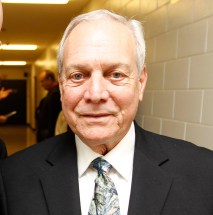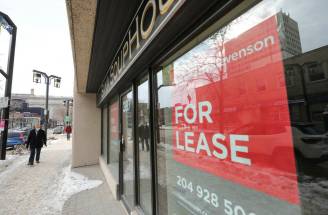Province relying on private-agency nurses to greater extent Chronic staffing shortage, COVID complications run up bill of nearly $40M
Read this article for free:
or
Already have an account? Log in here »
To continue reading, please subscribe:
Monthly Digital Subscription
$0 for the first 4 weeks*
- Enjoy unlimited reading on winnipegfreepress.com
- Read the E-Edition, our digital replica newspaper
- Access News Break, our award-winning app
- Play interactive puzzles
*No charge for 4 weeks then price increases to the regular rate of $19.00 plus GST every four weeks. Offer available to new and qualified returning subscribers only. Cancel any time.
Monthly Digital Subscription
$4.75/week*
- Enjoy unlimited reading on winnipegfreepress.com
- Read the E-Edition, our digital replica newspaper
- Access News Break, our award-winning app
- Play interactive puzzles
*Billed as $19 plus GST every four weeks. Cancel any time.
To continue reading, please subscribe:
Add Free Press access to your Brandon Sun subscription for only an additional
$1 for the first 4 weeks*
*Your next subscription payment will increase by $1.00 and you will be charged $16.99 plus GST for four weeks. After four weeks, your payment will increase to $23.99 plus GST every four weeks.
Read unlimited articles for free today:
or
Already have an account? Log in here »
Hey there, time traveller!
This article was published 18/04/2022 (1332 days ago), so information in it may no longer be current.
Manitoba’s Progressive Conservative government is spending more than $3 million every month for private-agency nurses to help cover chronic staffing shortages in the provincial health-care system.
Figures obtained by the Free Press from Shared Health show that in the first 11 months of the 2021-2022 fiscal year, Manitoba spent about $36 million on private-sector nurses to work in the public system.
Given the government is currently spending more than $3.3 million per month in private-agency nursing fees, the total for the year ending March 31 will reach nearly $40 million. That is three times the $13.3 million spent on private-sector nurses in 2017-2018, the first full fiscal year under the PC government.
Monika Warren, chief operating officer and chief nursing officer for Shared Health, said the system has been closely monitoring the increased use of private nurses by the regional health authorities and is trying to find ways to retain more nurses in the public system.
“We need every nurse (we train) to stay in Manitoba and work in the public system,” Warren said in an interview.
The nature of agency work provides certain advantages to nurses that are not always available in the public system, she acknowledged.
Agencies give contract nurses more flexibility over when and where they work, and their employees tend to be more insulated against mandatory overtime or having to take on additional shifts to cover staffing shortages, she said.
In a bid to keep public system numbers stable, Shared Health has been working with the Manitoba Nurses Union to develop a “float pool,” giving nurses the opportunity to take shifts where and when it is most convenient.
The most recent contract with the MNU also allows for signing bonuses when nurses agree to work full-time hours and improvements to evening and night-shift premiums, designed to level the playing field with the private sector.
“I want to take some of the dollars ending up in the pockets of the agency and put them into the pockets of nurses,” she said.
Warren said she thinks the actual amount of money paid to contract nurses is about the same as in the public system, after fees paid by the regional health authorities to the nursing agencies are deducted. Shared Health pays a flat $65 per hour for an agency nurse, compared with a range of $38 to $47 per hour paid to nurses in the public system. Agency nurses also receive travel expenses and per diems for assignments in rural or northern postings.
The increase in the use of private-agency nurses started before the pandemic, as staffing shortages had become an issue in the health-care system. The problem has been particularly acute in Winnipeg, where nurses have been frustrated by the hospital reorganization that required many of them to change where and when they work. As a result, many worked fewer hours, exacerbating staffing shortages.
Even so, the pandemic made a bad situation much worse.
Total expenditures on private nursing increased from about $25 million in 2019-2020 when the pandemic first hit Manitoba, to nearly $40 million at the conclusion of the 2021-2022 fiscal year, an increase of 38 per cent in just two years.
The use of private nurses is highest in the Prairie Mountain and Northern health authorities. Like many provinces, Manitoba has had a hard time finding nurses who want to relocate permanently to rural, remote and northern communities. A greater use of private agencies to fill nursing positions has been part of staffing in those regions for many years.
Darlene Jackson, president of the Manitoba Nurses Union, said she understands why RHAs are becoming increasingly reliant on agency nurses. And, many nurses who work primarily in the public system are often thankful to have the help, even when it comes from a contractor.

Government must address the working conditions that have driven nurses out of the public system, Jackson said.
“Work-life balance is the biggest issue,” she said. “All the mandated overtime and extra shifts are just too much for some nurses. But also we’ve heard that nurses do not feel respected by the employers (RHAs). A lot of nurses just don’t think the employers care about how stretched they are at the moment.”
Attracting nurses back to the public system will be difficult, she added.
Jackson said the MNU is aware an increasing number of nurses are clocking in for a minimum number of hours in the public system to qualify for benefits and pension, and then working the majority of their hours in the private sector. The current collective agreement allows them to work for both public and private employers.
There is also a suspicion that when all of the various costs are added up, it may actually be more cost-efficient for RHAs to use private-agency nurses rather than hire full-time staff.
A longtime private-agency nurse said it is clear the RHAs believe that to be the case. That nurse, who asked that her name not be used, said that when RHAs requests an agency nurse, they avoid a whole range of costs, including vacation and sick pay and extended health benefits. Agency nurses who are sick or on holiday can be replaced at the same cost; when a staff nurse calls in sick or takes holidays, other employees are under enormous pressure to cover off that absence through mandatory overtime or extra shifts.
“A lot of us know about job postings for full-time positions that go unfilled because the employers are more than happy just to continue filling holes with private agencies,” the nurse said. “For the employers, it’s actually a good deal.”
Health Minister Audrey Gordon declined to do an interview. In an emailed statement, she said her office continues to work with the MNU and “health care leaders to address staffing issues.”
dan.lett@winnipegfreepress.com

Born and raised in and around Toronto, Dan Lett came to Winnipeg in 1986, less than a year out of journalism school with a lifelong dream to be a newspaper reporter.
Our newsroom depends on a growing audience of readers to power our journalism. If you are not a paid reader, please consider becoming a subscriber.
Our newsroom depends on its audience of readers to power our journalism. Thank you for your support.
History
Updated on Monday, April 18, 2022 7:14 PM CDT: Fixes typo.
Updated on Tuesday, April 19, 2022 8:17 AM CDT: Fixes typo









